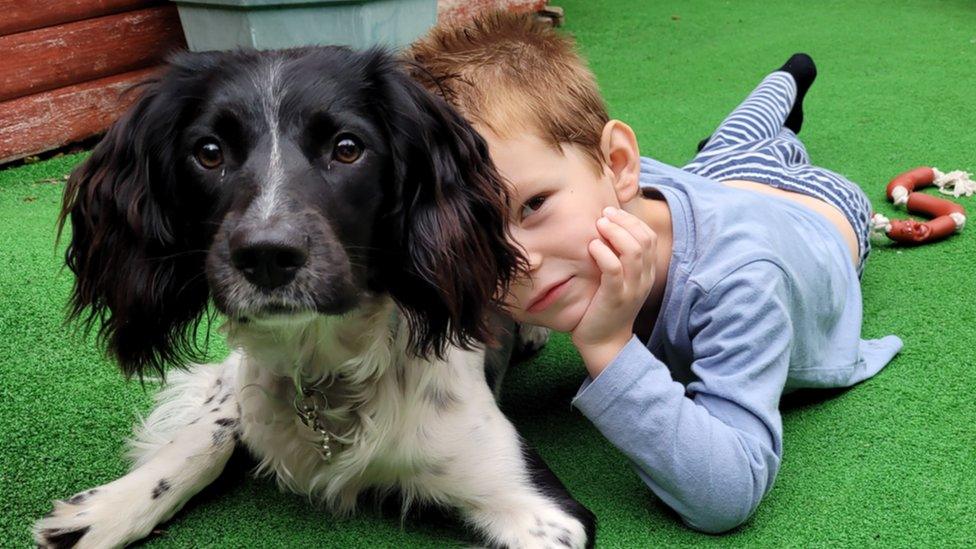Drug-carrying volunteers help train sniffer dogs in Wisbech
- Published
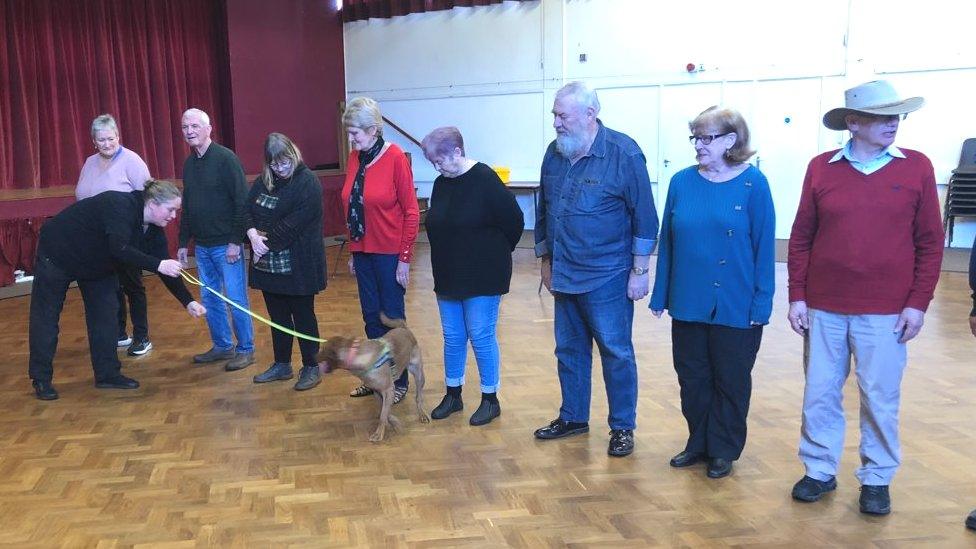
Drugs are hidden on some volunteers and the dogs have to find them
A private security firm is appealing for more volunteers to be sniffed and searched by trainee detection dogs.
Crown Canine Security Solutions, based in Wisbech, Cambridgeshire, holds regular sessions at the Queen Mary Centre in the town.
Participants are selected to hide various illegal substances on their person which a dog has to seek out.
Phil Bowyer, who runs the company, said dogs were trained to detect drugs, tobacco, accelerants and even bed bugs.
"It's been quite a big thing recently - bed bugs - high end hotels and chains employ dogs to sniff out those," he said.
The dogs are used by private security staff at venues, gigs, private properties and often to support police at football matches.
Special pyrotechnic training means they can sniff out flares or fireworks.
Handler Kirsty Armstrong, who brought her dog Chance along, said it was important to keep up with regular training.
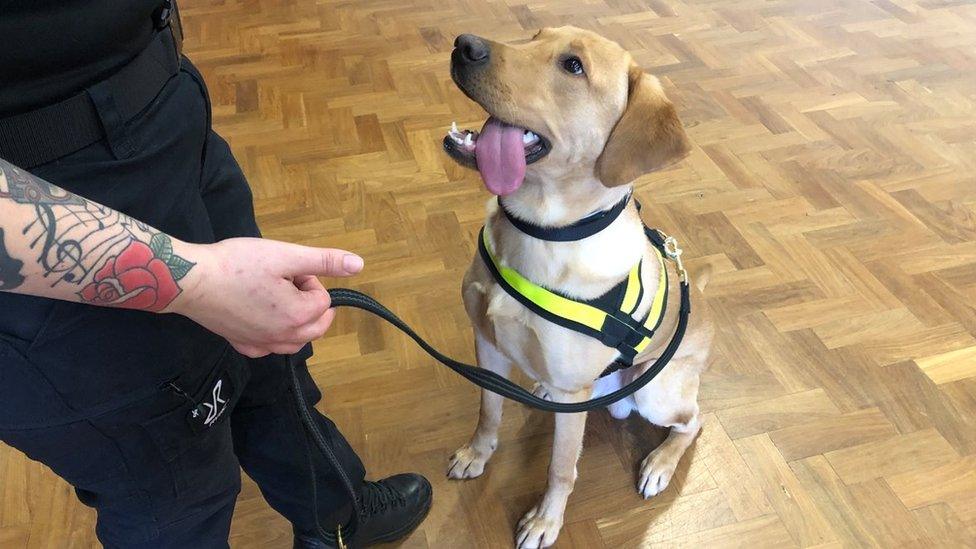
Security operative Kirsty Armstrong came along with her sniffer dog, Chance
The dogs are all "passive" detection animals, which means they have to be comfortable around people and cannot jump on them if they sniff something suspicious.
And they have to recognise the real deal - so actual drugs are used in the training, including heroin, cocaine and amphetamines.
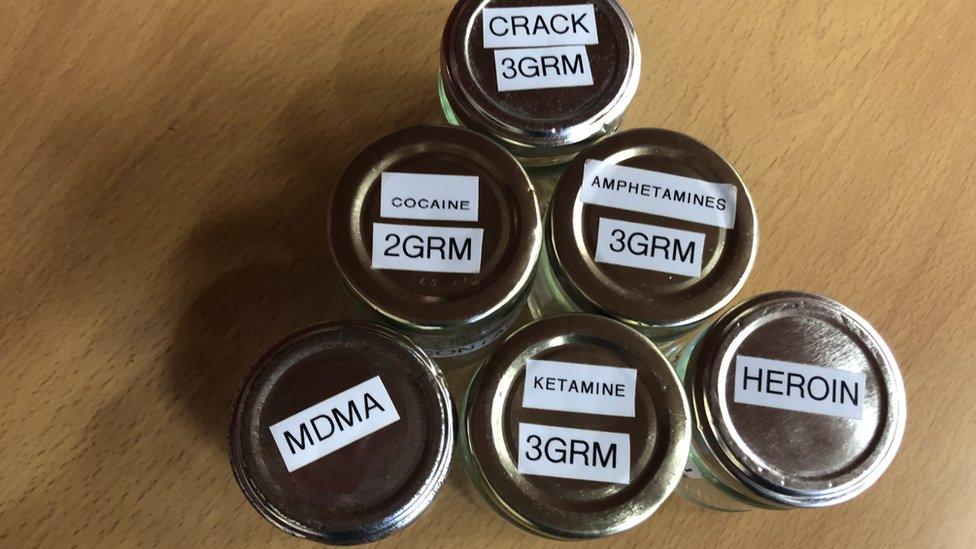
This selection of drugs used in the dog training are the real deal
Mr Bowyer, a retired prison service dog trainer, said: "I have a drugs licence. It's all real drugs and it's like being a pharmacist - I have the same licence."
About 30 people lined up to volunteer this week, with some asked to hide heroin, crack cocaine and cannabis in their shoes or cardigans.
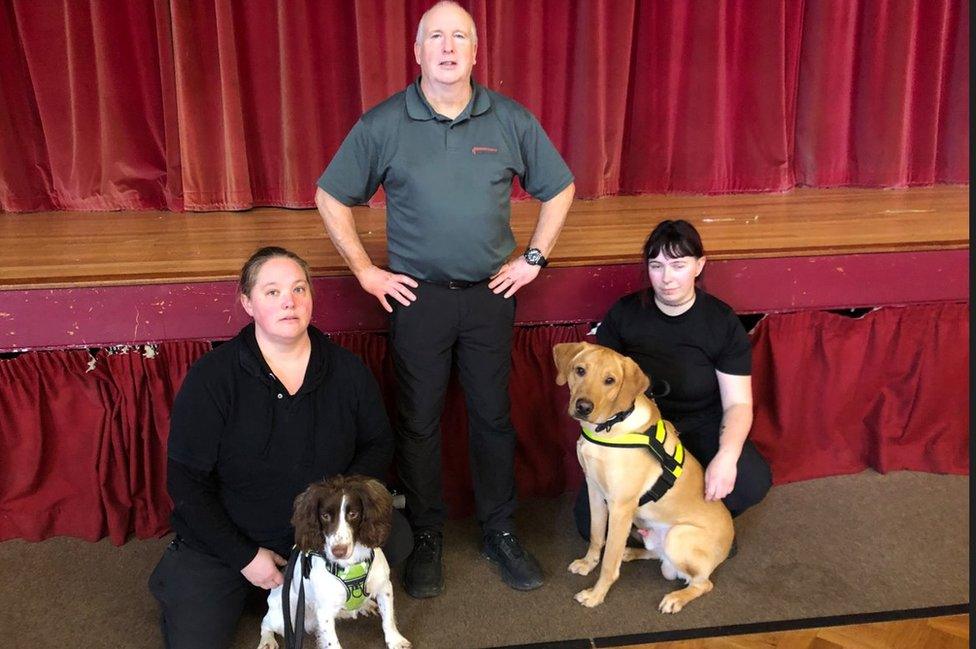
Debra Salata with Delta, a springer spaniel, Phil Bowyer and Kirsty Armstrong with Chance
"I have been coming to these sessions for eight years," said 58-year-old volunteer Yvonne Jupp.
"Last week I was hiding cannabis in my sock, it stank and the next day I had to wash all my clothes.
"I wouldn't miss it for the world, it is a real chance to sit and chat and meet new friends".
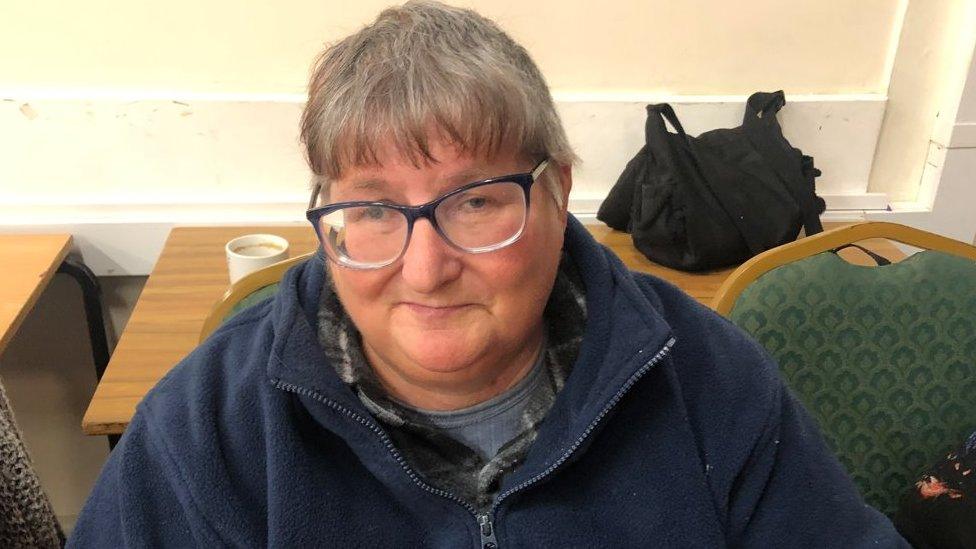
Yvonne Jupp is among 150 regular volunteers who support the sniffer dog training
Her friend Sue Woods, 63, said the friendship aspect of the sessions was also important to her.
The volunteers do not get paid, but refreshments are laid on for free and most of those attending were dog lovers.
The dogs are rewarded for their efforts with tennis balls, which are vital tools in their training.
Security dog handler Ms Armstrong, said: "We start off with something fun for them, like a ball and then we'll introduce a scent, and it becomes imprinted.
"At an event, you don't want drugs getting in, so you'll use a passive dog to 'scan' people as they're coming in and check they're not carrying something they shouldn't be."

Follow East of England news on Facebook, external, Instagram, external and X, external. Got a story? Email eastofenglandnews@bbc.co.uk, external or WhatsApp 0800 169 1830
- Published30 January 2024
- Published3 November 2022
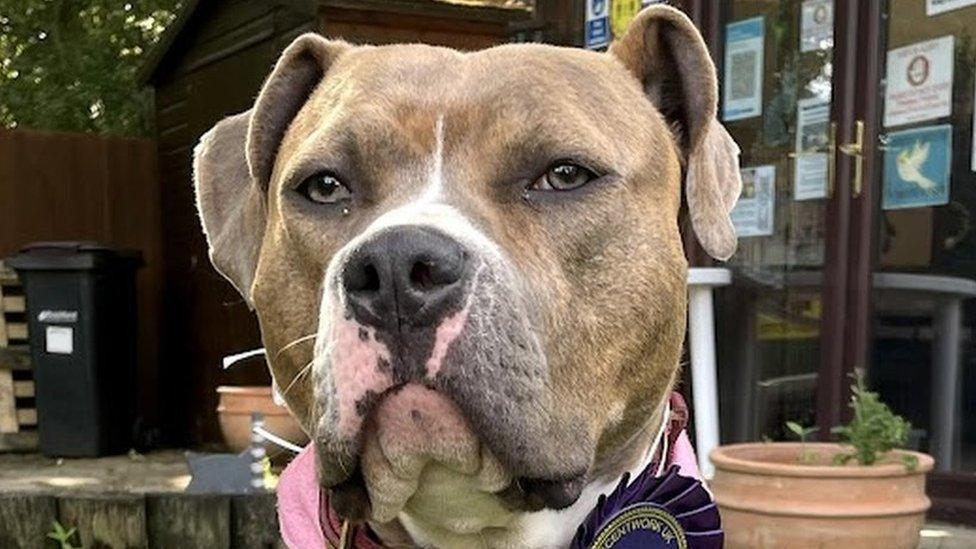
- Published11 October 2022
